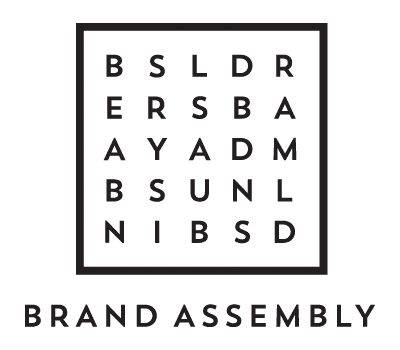Making Your Mark: Adriana Carrig of Little Words Project on Doing You, Being Kind, and Getting the Job Done
WORDS BY CARA BEST, PHOTOS COURTESY OF LITTLE WORDS PROJECT
Adriana Carrig didn't originally set out to change the world, but it happens to be a side effect of her inspirational accessories line, Little Words Project. What started as an exercise in positivity and self love among her sorority sisters quickly spiraled into a movement, bringing together women of all ages through inspirational bracelets and accessories. Now a thriving business with Adriana at the helm, Little Words Project is on a mission to end girl-on-girl cruelty and encourage women to uplift each other. We sat down with the girlboss to discuss social media, the impact of kindness, and what it's like to run a business in the 'burbs.
LITTLE WORDS PROJECT'S MESSAGE IS DEEPLY ROOTED IN FEMINISM AND GIRL POWER, DO YOU BELIEVE IT'S IMPORTANT FOR FEMALE-RUN BUSINESSES TO HAVE A STRONG, FEMINIST APPROACH?
I think needing to have your brand be all about female empowerment almost negates the entire concept of women being equal to men. I think having that messaging for LWP helps us hone in on who we are as a brand. It's important to have some sort of passion that drives the company, but it doesn't necessarily need to be female empowerment. If you're a female run business and your passion is coding, the business doesn't just have to be about women learning to code. I think just having a woman at the head of a technology company is empowering to other women. At the end of the day, helping others is going to be more filling than growing a company without affecting other people, but there are many ways to go about that!
LWP HAS A STRONG, ENGAGED AUDIENCE ON SOCIAL MEDIA, WHICH HAS HELPED EXPAND THE REACH OF THE BRAND. HOW DID YOU GET TO THAT POINT?
I get requests almost daily from girls asking how I did it and it's hard to answer. There's no step-by-step guide, even when I look back. We just hit 20,000 followers and it's so exciting! When I first started all I had was a blind belief in the brand and I didn't need the validation of followers to post photos. I think it can be so crippling to compare yourself to other brands and even today there are plenty of brands I can compare LWP to. You just have to put your blinders on and focus on building your brand identity, because that's what your community is built on.
HOW DO YOU CURATE YOUR CONTENT NOW THAT YOU HAVE THIS PLATFORM? HOW DO YOU DEVELOP THE BRAND WHILE KEEPING YOUR MAIN BASE INTACT?
I really want our followers to feel like they have friends in the Little Words Project team. They know us all by name and they know we're real and we're going to show the good, the bad, and the ugly of building a business on our channels. The realer and more raw you are with your audience, the more they'll want to follow and support you. It's not always the easiest thing - I even doubt myself now and I go, "Damn, I was so confident, how the hell was I posting all of this stuff to virtually no one before?"
The truth is we all have these virtual identities that act as a lens for people to view our lives through. I find it so important to show the real girls behind LWP with the people who care about the brand. You have to worry less about posting times and likes and focus on being authentic and the engagement will follow. Sometimes I wish I could just create content all day and curate our feeds, but at this point I spend half my day doing things I don't want to do. I have to answer customer questions or I'm on the phone with FedEx, but the best part of owning a business is that I also get to do things I love every day. I get to get those creative juices flowing when I'm thinking about shoots I want to do or nailing down new styles and I get to show it all to our community.
MOST COMPANIES EVENTUALLY MAKE THE MOVE TO A METROPOLITAN AREA, BUT YOU DID THE OPPOSITE. HOW HAS RELOCATING TO THE SUBURBS AFFECTED YOUR BUSINESS?
I have to say, moving to a smaller suburb in New Jersey is one of the best decisions we've made as a company. We've been able to get more space to hire more people and bring more manufacturing in house and really develop the brand into something so much bigger that it could have been in our 700 square foot space in Hoboken. Everyone dreams of having a huge studio in Soho, but at the end of the day most of your business can be conducted anywhere. If you're going to allow where you're located to affect your business, then you're putting up your own roadblocks and you need to assess why you're doing that.
ANY PARTING ADVICE?
It's such a cliche, but the second you allow yourself the freedom to not care what others think so much possibility opens up for you.




